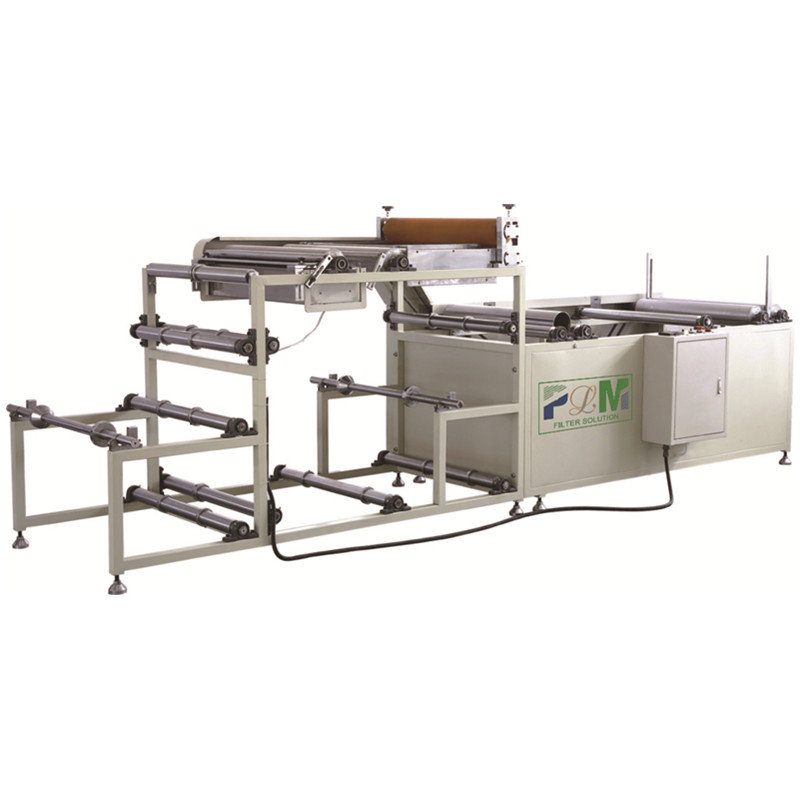Oct . 17, 2024 11:41 Back to list
CE Certification for Bonding Machines Explained and Its Importance in Manufacturing Processes
Understanding CE Certification and Bonding Machines
In today's global market, ensuring the safety and quality of products is a top priority for both manufacturers and consumers. One vital aspect of this commitment is CE certification, especially in specific fields like electronics, machinery, and construction equipment. Understanding the implications of CE certification, particularly in the context of bonding machines, is crucial for manufacturers aiming to enter European markets.
What is CE Certification?
CE certification signifies that a product meets European safety, health, and environmental protection standards. The CE marking, which stands for Conformité Européenne (European Conformity), is mandatory for products sold within the European Economic Area (EEA). This certification assures consumers that the product has been tested and conforms to the stringent safety regulations set by the European Union (EU).
The CE marking is especially essential for electronic and mechanical devices, where the risk of injury and hazards is heightened. Bonding machines, which are used extensively in manufacturing to create strong adhesive bonds between materials, are no exception.
Importance of Bonding Machines
Bonding machines play a crucial role in various industries, including automotive, aerospace, and electronics. They ensure that components are securely bonded, enhancing overall product strength and durability. The technology behind these machines can vary from simple adhesive application devices to sophisticated automation systems that incorporate robotics and advanced sensors.
Given their importance, the safety of bonding machines is paramount. A malfunctioning bonding machine can lead to product failure, accidents, or workplace injuries. Thus, obtaining CE certification is not just a regulatory requirement; it is a critical measure for ensuring operational safety and product reliability.
CE Certification Process for Bonding Machines
The process of acquiring CE certification for bonding machines involves several steps
ce certification bonding machine

1. Identifying Applicable Directives Various EU directives apply to industrial machinery, including the Machinery Directive (2006/42/EC) and the Low Voltage Directive (2014/35/EU). Manufacturers must identify which directives apply to their specific bonding machines.
2. Risk Assessment Conducting a thorough risk assessment is essential. Manufacturers must identify potential hazards associated with the operation of the bonding machine and take necessary precautions to mitigate these risks.
3. Technical Documentation Proper documentation must be maintained, demonstrating compliance with relevant directives. This documentation typically includes design specifications, risk assessments, and testing results.
4. Conformity Assessment Depending on the product and the level of risk, manufacturers may need to undergo a conformity assessment. This can involve self-certification or third-party testing by a notified body.
5. Affixing the CE Mark After successfully meeting all regulatory requirements, manufacturers can affix the CE mark to their bonding machines. This mark must be accompanied by supporting documentation available to European authorities upon request.
Benefits of CE Certification
Obtaining CE certification for bonding machines not only ensures compliance with legal requirements but also enhances a manufacturer’s credibility and competitiveness in the market. It opens doors to the European market, where consumers and businesses prefer products that comply with safety standards. Furthermore, it reduces liability concerns and fosters trust among customers and partners.
In addition, CE certification often leads to improved product quality and performance. The stringent evaluation process encourages manufacturers to innovate and enhance their products continuously.
Conclusion
In summary, CE certification is a crucial element in the manufacturing and marketing of bonding machines in Europe. It not only protects consumers by ensuring product safety but also benefits manufacturers by assuring compliance with regulations and enhancing marketability. As industries evolve and regulatory standards become increasingly stringent, the importance of CE certification will continue to grow, making it an essential consideration for manufacturers aiming to thrive in the competitive European market.
-
Premium OEM Snus Paper Supplier Custom Snus Filter & Packing Papers for Your Brand
NewsJul.05,2025
-
CE Certification PLJL-6 Six-Station Seal Leakage Tester for Spin-On Filter – High Efficiency & Reliability
NewsJul.05,2025
-
OEM PLXB-1 PU Pack Trimming Machine - Precision Cutting, High Efficiency, Reliable Quality
NewsJul.05,2025
-
Premium Engine Oil Filter Supplier & Exporter Reliable Engine Oil Filter Service
NewsJul.04,2025
-
Wholesale PLRZ-1000N Full-Auto Hot Melt Filter Paper Bonding Machine - High Efficiency & Precision
NewsJul.04,2025
-
OEM PLXB-1 PU Pack Trimming Machine - High Precision, Durable, Cost-Effective Solutions
NewsJun.10,2025
